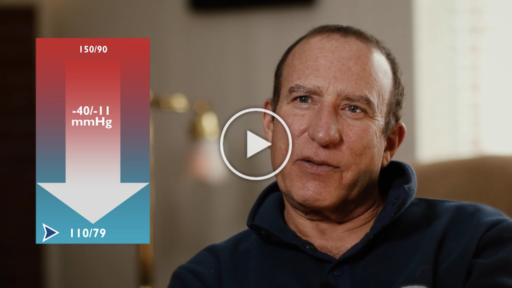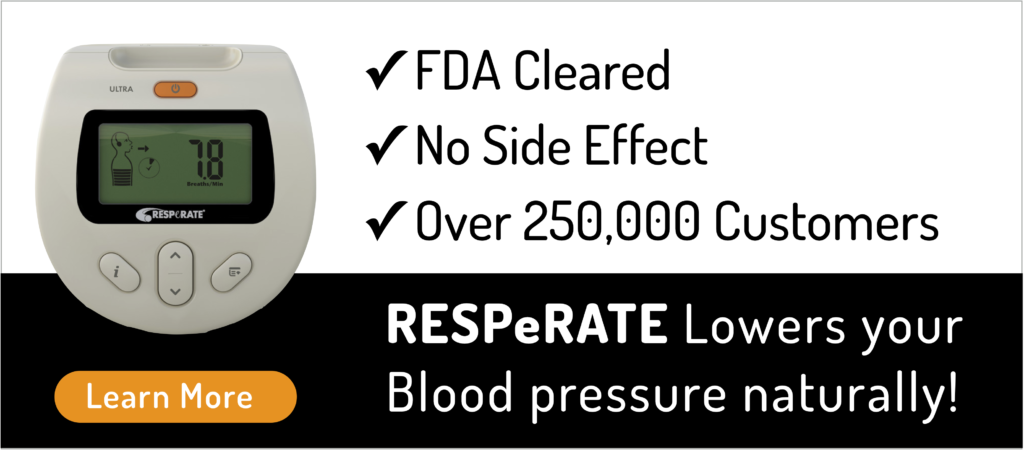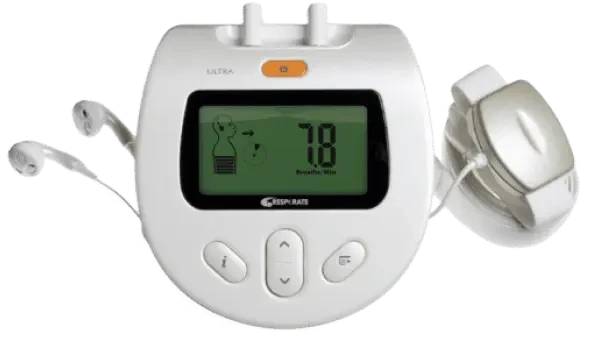In October of 2022, my cardiologist decided that he needed to start me a medication to treat my persistent a-fib. Within 2 weeks of beginning Amiodarone, my thyroid gland had taken a major hit. My thyroid was plunged into a hypothyroid state. This state also started to cause problems with my blood pressure. What is the connection between your thyroid and blood pressure?
What Is The Thyroid
Derived from the Greek word “shield,” the thyroid is a butterfly-shaped gland located in front of the windpipe (called the trachea) and just below the larynx or Adam’s apple in the neck. It is comprised of two halves, known as lobes, which are attached by a band of thyroid tissue called the isthmus.
The thyroid keeps your metabolism under control through the action of thyroid hormone, which it makes by extracting iodine from the blood and incorporating it into thyroid hormones. Thyroid cells are unique in that they are highly specialized to absorb and use iodine. Every other cell depends on the thyroid to manage its metabolism.
What Does the Thyroid Do?
The thyroid gland produces hormones that regulate the body’s metabolic rate as well as heart and digestive function, muscle control, brain development, mood and bone maintenance. Its correct functioning depends on having a good supply of iodine from the diet.
The release of thyroid hormones from the thyroid gland is controlled by a thyrotropin-releasing hormone from the hypothalamus in the brain and by thyroid-stimulating hormone produced by the pituitary gland. That forms part of a feedback loop called the hypothalamic–pituitary–thyroid axis.
Thyroid stimulating hormone and free thyroid hormones are used to monitor thyroid function in a patient. Typically, modest changes in free thyroid hormones result in significant changes in thyroid-stimulating hormone.
The Hormone Production Team
The thyroid gland produces thyroxine, which is a relatively inactive prohormone and lower amounts of the active hormone, triiodothyronine. Collectively, thyroxine and triiodothyronine are referred to as the thyroid hormones. The thyroid gland makes twenty percent of the body’s triiodothyronine; the other 80% comes from thyroxine converted by organs such as the liver or kidneys.
The thyroid gland also produces calcitonin from cells called C-cells. Calcitonin is understood to play a role in regulating calcium levels in the body, but its exact function in humans remains unclear.
What Is Hyperthyroidism?
Hyperthyroidism (overactive thyroid) is a condition in which your thyroid gland produces too much of the hormone thyroxine. Hyperthyroidism can accelerate your body’s metabolism significantly, causing sudden weight loss, a rapid or irregular heartbeat, sweating, and nervousness or irritability.
Several treatment options are available if you have hyperthyroidism. Doctors use anti-thyroid medications and radioactive iodine to slow the production of thyroid hormones. Sometimes, treatment of hyperthyroidism involves surgery to remove all or part of your thyroid gland. Although hyperthyroidism can be serious if you ignore it, most people respond well once hyperthyroidism is diagnosed and treated.
What Are the Symptoms of Hyperthyroidism?
Hyperthyroidism can mimic other health problems, which may make it difficult for your doctor to diagnose. It can also cause a wide variety of signs and symptoms, including:
- Sudden weight loss, even when your appetite and the amount and type of food you eat remain the same or even increase
- Rapid heartbeat (tachycardia) — commonly more than 100 beats a minute — irregular heartbeat (arrhythmia) or pounding of your heart (palpitations)
- Increased appetite
- Nervousness, anxiety, and irritability
- Tremor — usually a fine trembling in your hands and fingers
- Sweating
- Changes in menstrual patterns
- Increased sensitivity to heat
- Changes in bowel patterns, especially more frequent bowel movements
- An enlarged thyroid gland (goiter), which may appear as a swelling at the base of your neck
- Fatigue, muscle weakness
- Difficulty sleeping
- Skin thinning
- Fine, brittle hair
What Is Hypothyroidism
Hypothyroidism (under-active thyroid) is a condition in which your thyroid gland doesn’t produce enough of certain important hormones.
Women, especially those older than age 60, are more likely to have hypothyroidism. Hypothyroidism upsets the healthy balance of chemical reactions in your body. It seldom causes symptoms in the early stages, but over time, untreated hypothyroidism can cause some health problems, such as obesity, joint pain, infertility and heart disease.
The good news is that accurate thyroid function tests are available to diagnose hypothyroidism, and treatment of hypothyroidism with synthetic thyroid hormone is usually simple, safe and effective once you and your doctor find the right dose for you.
What Are the Symptoms of Hypothyroidism?
The signs and symptoms of hypothyroidism vary, depending on the severity of the hormone deficiency. But in general, any problems you have tend to develop slowly, often over a number of years.
At first, you may barely notice the symptoms of hypothyroidism, such as fatigue and weight gain, or you may attribute them to getting older. But as your metabolism continues to slow, you may develop more obvious signs and symptoms. Hypothyroidism signs and symptoms may include:
- Fatigue
- Increased sensitivity to cold
- Constipation
- Dry skin
- Weight gain
- Puffy face
- Hoarseness
- Muscle weakness
- Elevated blood cholesterol level
- Muscle aches, tenderness, and stiffness
- Pain, stiffness or swelling in your joints
- Heavier than usual or irregular menstrual periods
- Thinning hair
- Slowed heart rate
- Depression
- Impaired memory
When hypothyroidism isn’t treated, signs and symptoms can gradually become more severe. Constant stimulation of your thyroid gland to release more hormones may lead to an enlarged thyroid (goiter). In addition, you may become more forgetful, your thought processes may slow, or you may feel depressed.
Hypo or Hyper: Whose the Villain?
It was previously thought that people with thyroid issues or people on T4 treatments might notice lower blood pressure if they were diagnosed with hypothyroidism. This thought came from reasoning that the body would be pushing blood to the arteries with less force because of the lower metabolism of the ailing thyroid. Also, this would create less blood volume being circulated around the body because of the salt lost.
However, new studies have shown quite the opposite. A study published by the Journal of Hypertension in 2007, indicates that tested individuals with hypothyroidism had high rates of pulse pressure and systolic blood pressure over a twenty-four-hour period compared with people not diagnosed with hypothyroidism.
In the study, by Kotsis et al, there were two control groups: hypothyroid patients and healthy volunteers. With their twenty-four-hour parameters, they used 100 volunteers (82% of them being women) who had been diagnosed with hypothyroidism. Another 100 volunteers were used as healthy patients not diagnosed with hypothyroidism. Researchers noticed a direct correlation when comparing blood pressure hypothyroid patients and healthy patients.
The findings from the study showed that: “Clinic systolic and diastolic blood pressures were significantly higher in patients with hypothyroidism compared with volunteers. The mean 24-h systolic blood pressure and 24-h pulse pressure were significantly higher in patients with hypothyroidism compared with volunteers.”
“The 24-h systolic blood pressure variability was also significantly higher in patients with hypothyroidism. Fasting serum cholesterol tended to be higher in patients with hypothyroidism compared with volunteers, but the difference was not statistically significant while fasting serum triglycerides were significantly higher. Body mass index was also significantly higher in patients with hypothyroidism.
Hypothyroidism has been recognized as a cause of secondary hypertension. Previous studies on the prevalence of hypertension in subjects with hypothyroidism have demonstrated elevated blood pressure values.
Increased peripheral vascular resistance and low cardiac output have been suggested to be the possible link between hypothyroidism and diastolic hypertension. The hypothyroid population is characterized by significant volume changes, initiating a volume-dependent, low plasma renin activity mechanism of blood pressure elevation.
Hypothyroidism and Your Heart
In the June issue of the Journal of Clinical Endocrinology and Metabolism (JCEM), a large study revealed that among participants with congestive heart failure, having hypothyroidism — even the mild form — significantly increases the risk of death compared to people with normal thyroid function.
So, thyroid and blood pressure seems to be directly connected. “Hypothyroidism has known effects on multiple cardiovascular pathways, including adverse effects on systolic and diastolic function, endothelial function, and lipid levels, and our study suggests that if someone has higher underlying cardiovascular risk, they may be more vulnerable to the effects of mild hypothyroidism,” says Connie Rhee, MD, of Brigham and Women’s Hospital in Boston, and lead author of the study.
Hypothyroidism is Completely Treatable
Standard treatment for hypothyroidism involves the daily use of the synthetic thyroid hormone levothyroxine (Levothroid, Synthroid, others). This oral medication restores adequate hormone levels, reversing the signs and symptoms of hypothyroidism.
One to two weeks after starting treatment, you’ll notice that you’re feeling less fatigued. The medication also gradually lowers cholesterol levels elevated by the disease and may reverse any weight gain. Treatment with levothyroxine is usually lifelong, but because the dosage you need may change, your doctor is likely to check your TSH level every year.
Alternative Treatments
Although most doctors recommend synthetic thyroxine, natural extracts containing thyroid hormone derived from the thyroid glands of pigs are available. These products contain both thyroxine and triiodothyronine. Synthetic thyroid medications contain thyroxine only, and the triiodothyronine your body needs is derived from the thyroxine.
Extracts are available by prescription only and shouldn’t be confused with the glandular concentrates sold in natural foods stores. The Food and Drug Administration doesn’t regulate these products, and their potency and purity aren’t guaranteed.

 Eli Ben-Yehuda
Eli Ben-Yehuda 















 Download Brochure
Download Brochure
Comments
5 Replies to “Is There A Connection Between Your Thyroid and Hypertension?”
I might add that patients should be careful with thyroid preparations if they are adrenal insufficient. I was given levothyroxine which made my symptoms worse. Many people find Armour Thyroid to be more effective since since it is a dessicated thyroid and converts T4 to T3. Sometimes the addition of iron or iodine can restore function back to normal.
Hi Steve, Thank you for the info. Kindest Regards, Eli, Content Manager, RESPeRATE.
I would agree that hypothyroidism is considered a cause of secondary hypertension but most hypertension is considered essential hypertension with no known cause but I believe the cause is simply the western diet which causes endothelial dysfunction and depletes nitric oxide levels. If you have unexplained hypertension which becomes severe under an optimal preferably plant based diet then see your health care provider to investigate other causes.
I might add that TSH might become elevated under the influence of adrenal insufficiency and the adrenal and thyroid interact. From my own experience, the real underlying problem may be hydrocortisone deficiency since cortisol relies on thyroid hormone. In this scenario hypotension develops particularly when both cortisol and aldosterone levels are low.
Most people should also be conscious of their iodine and iron levels which can be a cause for low thyroid function. Aim for 150mcg of iodine per day and also get ferritin levels checked.